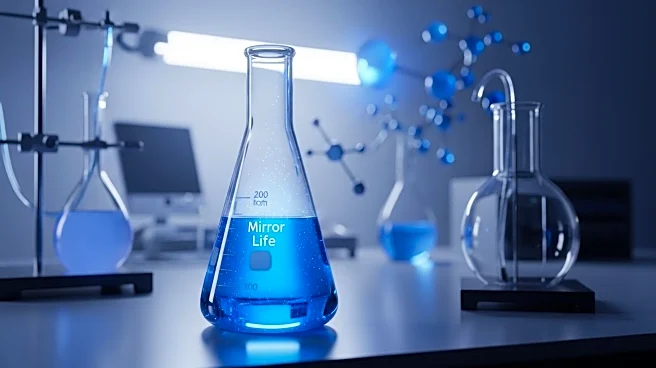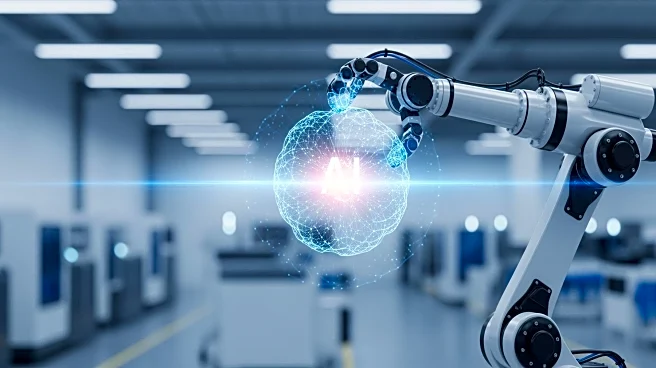What is the story about?
What's Happening?
Scientists are expressing concerns over the creation of 'mirror life,' a concept in synthetic biology involving organisms with reversed molecular structures. These mirror cells, constructed from reversed DNA and proteins, could pose significant risks if they escape laboratory settings. The concept originated from a laboratory challenge but now raises ethical and safety concerns. Mirror life could potentially infect humans and ecosystems, as these organisms would be invisible to immune systems and lack natural predators. The report calls for global restrictions on further experiments to prevent potential ecological and health threats.
Why It's Important?
The development of mirror life represents a frontier in synthetic biology with profound implications for health and environmental safety. While initially promising for medical applications, the potential for mirror organisms to evade immune detection poses significant risks. If released into the environment, these organisms could disrupt ecosystems and outcompete natural species, leading to widespread ecological damage. The report highlights the need for stringent regulations to prevent accidental releases and safeguard against irreversible harm to biodiversity and human health.
What's Next?
Experts are advocating for global action to regulate the development of mirror life, emphasizing the need for international collaboration to establish safety protocols. Meetings in Paris, Manchester, and Singapore are planned to discuss regulatory measures and prevent potential ecological disruptions. Scientists are urging proactive measures to address biosecurity concerns and prevent the unintended consequences of synthetic biology advancements. The focus will be on balancing innovation with safety to ensure responsible development of new biological technologies.















